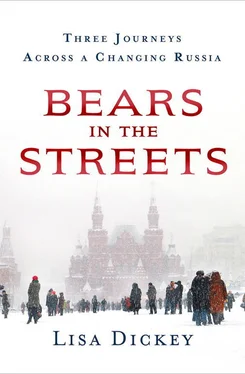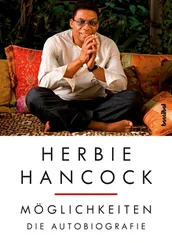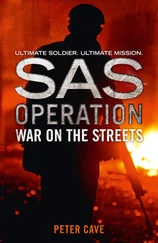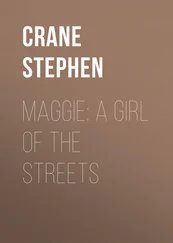I told her that people had advised me not to reveal this in Russia, but it was hard to pretend I was single and alone when I’m not. She nodded. Then I said, more as a clarification than a question, “You won’t tell your mama, will you?”
“No,” she said. “She’s a different generation. Why upset her?”
But two days later, I told Valya myself, when the two of us went for a picnic. As we nibbled at deep-fried meat pastries and sipped from the cans of Yarpivo she’d brought, she said gently, “Liza. I was just thinking that while you know everything about us now, I still don’t know anything about you.” She seemed confused, even a little hurt, by my reticence to share. So I told her about my life, including Randi.
Her eyebrows flew up. “Ahhh. I’ve never known anyone like that before.”
“Sure, you have,” I said. “You’ve known one for 20 years, even if you didn’t realize it. People don’t always tell.” She pondered this.
“Well,” she replied, “the main thing is, you’re happy. That’s what counts. But… maybe don’t tell a lot of other people.”

Tokarevsky lighthouse, with jet ski buzzing nearby, 2015 (PHOTO BY LISA DICKEY)
I was relieved that my coming-out-in-Russia process seemed to be going smoothly so far, [6] I should note that in general, coming out as a gay woman is far easier than doing so as a man. In Russia—and pretty much everywhere, really, except perhaps ancient Greece—the idea of two women together creates far less panic than that of two men together.
and this bonding with Valya seemed like the perfect way to end my time in Vladivostok. But, as I was just about to discover, my time here wasn’t destined to end quite yet.
* * *
I was in my hotel room, starting to pack, when a maid came by to say I had a phone call at the front desk. This was weird; why would someone call me at the hotel rather than on my cell phone? I walked to the lobby and a desk clerk handed me the receiver. A woman at the other end of the line began speaking very quickly, and though I missed much of what she said, it gradually became clear that she was calling about the package with my new laptop: she was telling me it was undeliverable, and they were sending it back to the United States.
“No, no, no!” I said. “Why?” A string of impossible phrases followed: There’s a problem with the invoice, you can’t receive a package at the hotel, the hotel isn’t licensed to receive commercial goods, the value of the package is over the allowed amount, we’re sending it back, there’s nothing we can doooo…
“You can’t send it back!” I shrieked. Even if I could buy a new MacBook in Vladivostok, which I wasn’t sure I could do, it would have none of my documents, passwords, data, and photos. I needed this laptop, and it had made it all the way here to Vladivostok, and now they were going to send it back? “Please, please, please,” I said. “Is there anything I can do?” And then it was as if she were reciting Russian customs regulations in the voice of Charlie Brown’s teacher— wah wah wah waaaaaaah . I took her number, begged her not to return the package just yet, and said I’d call back.
And then I called—who else?—Lusya. Not only was she the fix-it person, but she also, incredibly, happened to work for a shipping company, so she knew the ins and outs of Russian customs. I told her what had happened, and as I’d hoped, she immediately said, “Give me the number. I’ll call her.”
What followed was three nightmarish days of back and forth with DHL in Russia, DHL in Los Angeles, Russian customs, and the mom-and-pop store in downtown Los Angeles from where Randi had sent the package. We were instructed to write (and rewrite) letters declaring the package had been misaddressed, obtain new invoices indicating that I was the actual recipient rather than the hotel, fill out numerous customs forms, and be prepared to pay another $200 or so in tariffs. [7] At one point, the Russian DHL rep chastised me, saying, “You should simply have had the package sent to your name, in the city of Vladivostok. No street address.” As if.
And it still wasn’t clear whether they’d actually release the package. The USSR had been gone for nearly 25 years, but Soviet-style bureaucracy was clearly not dead yet.
I set my alarm to wake each night at 3 a.m. so I could talk with Randi in L.A. and tell her what we needed before she went to work. There was only a two-hour overlap when businesses in Vladivostok were open and those in L.A. hadn’t yet closed, so that window—10 a.m. to noon Vladivostok time—was inevitably filled with frantic Skype calls and e-mails, as Lusya, Randi, and I tried to coordinate what the Russian side wanted with the American side. During these three days, I almost never left the hotel—though I did have to go to the train station to change my ticket to a later date. I’d brought a small stash of Xanax in case anything truly stressful happened on the trip, and as I started popping them, I wondered if I’d brought enough.
After yet another mad flurry of calls and e-mails, Lusya told me that it appeared customs would release the package. I was instructed to go to the Vladivostok DHL offices at 10 a.m. the next day, Friday, September 11, to start a multistep, multiple-destination process. I’d have to get everything done before the offices closed, or I’d be stuck in Vladivostok over the weekend—so when Lusya told me she’d take the day off work to drive me, I nearly wept with relief. That evening, she sent what became my favorite text message of all time: “Hello. 9 a.m. by Lenin. Bring your passport.”
The next morning, I learned that Lusya drives like a bat out of hell. We raced to the DHL offices at the old Vladivostok airport—or at least, we thought we did, until Google Maps mistakenly sent us down a dirt road into a little village. We asked directions from a scruffy guy in a van, and he said, “Follow me,” which in any other circumstance you couldn’t have paid me to do. But he led us to the right road, and we finally parked and then hiked up four flights to the DHL office, where Oksana, the woman who’d called me at the hotel, gave us a stack of paperwork to fill out and then carry to the Russian customs office—which was at our second destination, the new airport.
This was like the classic Soviet purchasing system: you stand in one line to point out what you want, in another line to pay the cashier, and in a third line to hand the receipt to a saleslady and get your item. But these lines, unfortunately, were miles apart. Lusya and I sped to the airport, parked, and hurried in, and when we managed to locate a uniformed customs official, the woman walked us up to a sliding-glass door leading into a secure area.
I expected her to whip out a magnetic keycard, but instead she wedged her fingers between the doors and forcibly pried them open, in a pose reminiscent of Samson knocking down the temple columns. This was twenty-first-century Russian airport security? We followed her in, and I filled out another ream of paperwork while the official declared that I needed to pay “Fourteen thousand, two hundred twenty-nine rubles and thirty-six kopeks. No credit cards. Exact change, please.” Fortunately, Lusya had warned me this might happen, so I’d brought a stack of bills and a pocketful of change, from which I now carefully counted out the exact amount.
We raced back to the DHL office, and finally— finally! —I had my new laptop. I told Lusya I wanted to take her and her family out for dinner as a thank-you, and also as a farewell, as this would be my last night in Vladivostok. But I had one more task to complete before then.
Читать дальше













